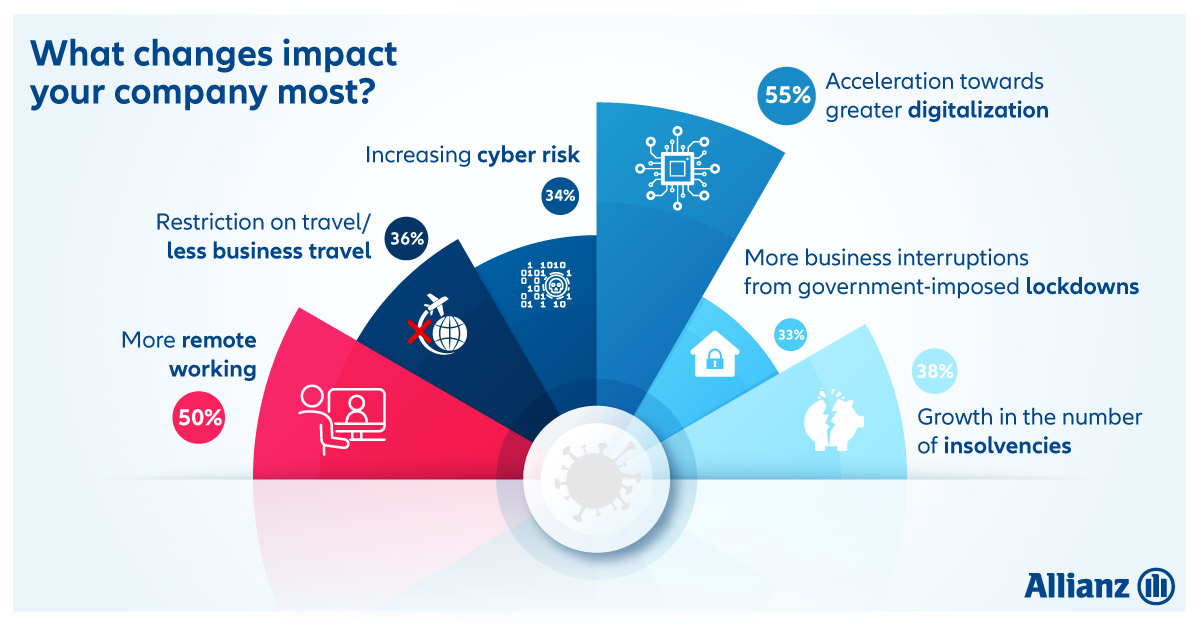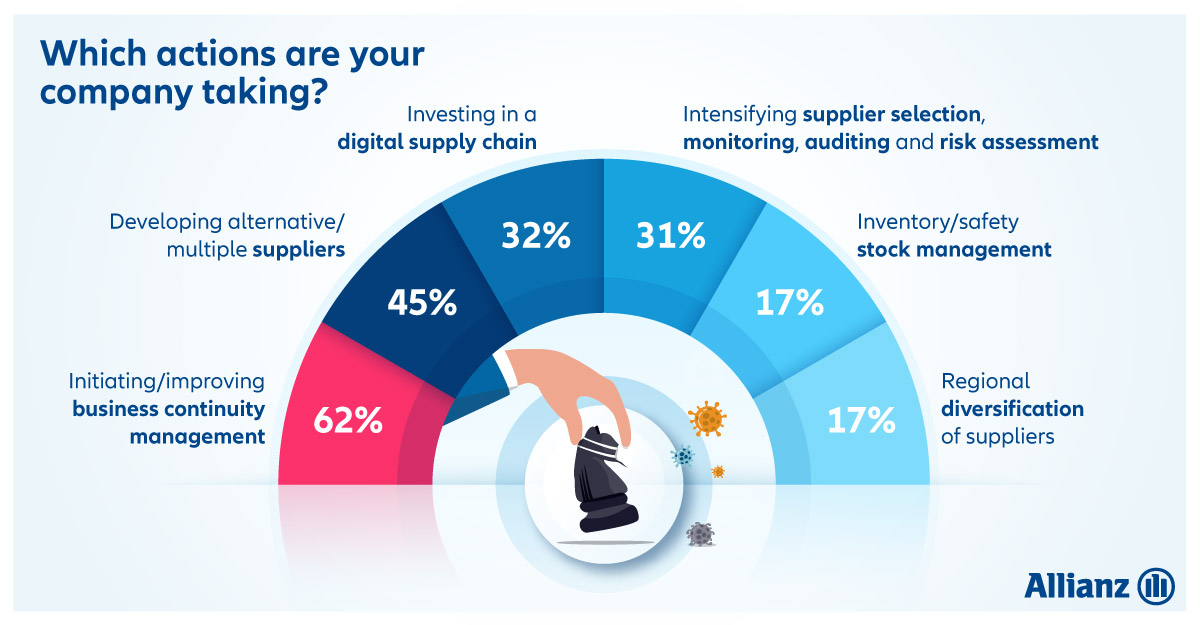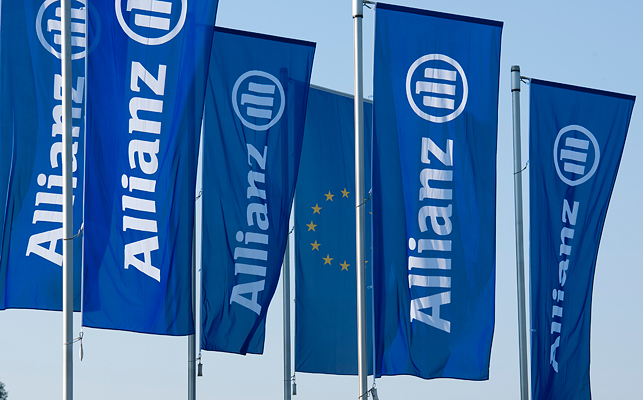The speed with which coronavirus spread across the globe took everyone by surprise. Companies too were caught unawares.
While many companies, including Allianz, set up dedicated Covid-19 response committees with representation from key corporate functions, many others struggled to keep their operations afloat. Last year, ‘business continuity plan’ might have been the most-heard phrase in corporate corridors. The focus has only sharpened since.
About 62 percent of the respondents in the Risk Barometer believe that setting up or improving business continuity plans should be a priority.
According to Thomas Varney, Regional Manager of Risk Consulting, North America, at AGCS, the pandemic has shown that business continuity planning must become more holistic and dynamic. “Plans need to be constantly updated and tested, including having alternative suppliers available for raw and intermediate materials. They need to be cross-functional and integrated into an organization’s risk management and strategic processes.”
Even before Covid-19’s seismic power was felt, the rising complexity of global supply chains was becoming a cause of concern for companies. The sudden disruption in 2020 forced them to take a closer look at their supply chains. This year, about 45 percent of the respondents expect to develop multiple suppliers and alternative supply chains to prepare for exigencies. “In reaction to the pandemic, we are seeing clients make changes to their supply chains, including near-shoring (bringing production to a nearby country) and some reshoring and changing the locations of supplies, particularly for U.S. companies,” says Philip.
Efforts to build more resilient supply chains are welcome as they enable businesses to react quickly to market trends, says Georgi Pachov, Head of Portfolio Steering and Pricing at AGCS. “It’s not just about limiting insurance claims, more resilient supply chains should translate to more successful companies.”
Among other measures being considered are investments in digital supply chains; stricter supplier selection, audit and risk assessment; and inventory and safety stock management.





